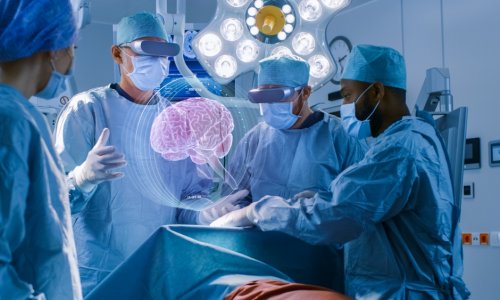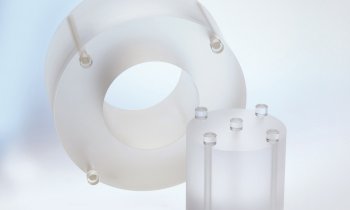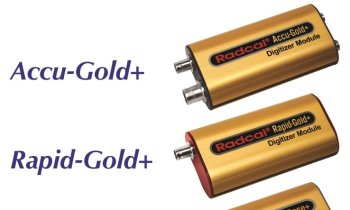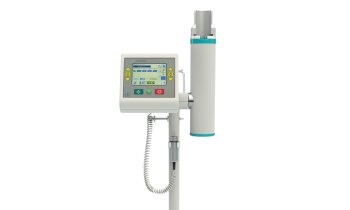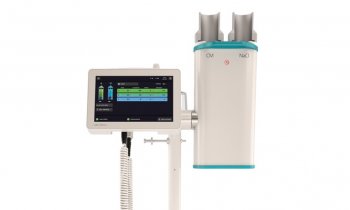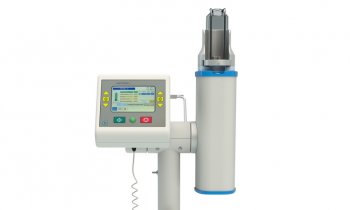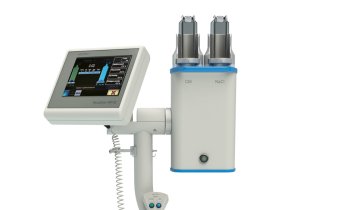ECR 2007
Science and culture: between tradition and modernity.
Interview with Christian Herold, Head of the Clinical Department for Radiodiagnostics at the General Hospital Vienna, Austria.
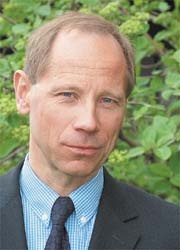
The social programme is an important aspect of the ECR. As a resident of Vienna, you will be able to organise events on a different scale to your predecessors in 2007.
CH: Over the last 15 years, all ECR presidents have tried to find the best venues and organise the best events possible. However, I do have a few insider’s tips and know of a few palaces that no one has seen yet. As an Austrian I can afford to be a little less mainstream. Just look at the poster! I don’t want to conform to all the cliches – there will be no performance of Mozart by the Vienna Boys Choir, riding on Lipizzaner horses, so to speak. I would also like to show the modern side of Austria – modern Austrian culture. The poster was a first step in that direction. It represents the old and the new Vienna and will finally be a multimedia project, which, through different ways and means, will bring together culture and the congress, modernity and tradition. The music programme will also reflect this.
Does that mean listening to Schönberg?
CH: I will go even further than that. Why shouldn’t Joe Zawinul perform, a Vienna-born jazz performer with an international background, who lives in New York and who brings together people from different parts of the globe with his syndicate. This might shock the audience but, on the other hand, might be perceived as a reference to the quality of modernity. The ECR should show how different generations of ECR visitors deal with the past, present and modernity. In other words, I’d like to emphasize the contrast and connection between tradition and modernity. One night we might possibly have a literary evening at a traditional Viennese coffee house - which would also connect us with the ECR 2007 host country, the Czech Republic. The coffee houses connect Vienna, Prague and Budapest, so our joint history also will be given its place.
This is a good point. On a scientific level, there have been complaints that Eastern Europe is not given the importance at the conference that it should have. Do they have any foundation?
CH: This is not an easy subject. ECR visitors have very high expectations for this congress. It lives by its international experts, its stars, its brilliant speakers, those who attract an audience. We try to attract a high percentage of very good speakers and international experts to the congress.
Aren’t there any of those stars in Eastern Europe?
CH: Of course there are some in Central and Eastern Europe, but we don’t know all of them. I’ve been trying to place representatives from the Central and Eastern European countries and have done the same with my congress committees and sub-specialty committees. Unfortunately, it is not always easy to find those Eastern European experts who are able to perform at an international level – who speak good enough English, are brilliant communicators and thereby fulfil the qualification profile. The question is: What can we do to integrate experts from the Central and Eastern European countries in the ECR’s postgraduate educational programme, in a comprehensible manner? One possibility is the evaluation of the scientific presentations at the ECR, which should give us a data pool of experts who are brilliant speakers and also brilliant scientifically. Through this pool we could build up a think-tank and achieve an objective approach to identify good people. This has already happened, and in that way we can integrate scientists who fulfil the qualification profile into the ECR lecture programme.
We need to be proactive, but we also need the active commitment of the scientists, and those researchers whose scientific presentations are good are invited. If I want to appear at the ECR as a speaker, I must present myself as active and, in an abstract, I must have the heart to get on the ‘stage’, and once there, I must deliver and then be discovered! How does a football club find its players? It has its scouts.
But you are not scouting for talent. You simply ensure that the ECR is open to offers and hope there will be takers.
CH: Yes, on the one hand, but we do scout for talent. Many renowned experts and scientists who work with the ECR, and travel to attend lectures, pass on the names and details of so far unknown hopefuls. The national and international associations also pass on names. In addition, we promote education via the new European School of Radiology so that young scientists can familiarise themselves with the standards.
Not many women are visible at the congress. Does this scouting include them?
CH: Absolutely! The congress is very much open to women! I’m glad more and more women are visible and that they are becoming more active at the ECR. I think that, on the whole, the ECR is a congress that is very accommodating towards women. There is a substantial percentage of women on my congress committee; they hold responsible positions and plan the entire congress programme. There are also very many young female experts.
Which specialist events will you offer in 2007?
CH: A congress must have an attractive programme to draw visitors, and we should achieve this with the multi detector CT course. However, for example, molecular imaging is still a relatively small field, which mainly concerns research, but we have featured molecular imaging for the last three years and have seen a continuous increase in visitors. Lectures are attended by specialists and those who are curious. In 2007 we will offer a mini-course running for three days, and this will also explore the clinical aspects of molecular imaging. We want to show the basics and applications from the laboratory through to clinical applications. So, there will be people speaking from fields other than radiology. There are over 20 different medical fields, subjects and sub-specialties working together to promote molecular imaging in a sensible and comprehensive way. It will be very interesting. As a university we are already exposed to interdisciplinary organisation, and it is a new experience having people from different medical fields sitting at the same table. We have a saying in Vienna: ‘Talking brings people together’. Here in Europe we can’t do things the American way, which is to buy a superstar for a lot of money, build a large research facility and then get things going. In Europe we must use the resources already available to us, we have to talk and network existing structures, which is something we already do in molecular imaging.
The number of visitors at the Hospital Administrator Symposium, organised at the ECR for the last three years, seems to be signalling a trend. What do you want for this symposium in 2007?
CH: I’m a founder member of the European Working Group on Management in Radiology. We founded this club as young rebels and weren’t always well-received. But it was a long-term initiative that aimed to increase interest in management among younger as well as the older radiologists. We dealt with numerous subjects, ranging from departmental management to quality management, from personnel to finance. This is one of my general concerns. I will not only continue the programme next year but also expand it. Apart from that, it should actually be called the ‘Hospital Management Symposium’ to emphasize that we deal with active people here.
What I would like to achieve with the 2007 programme is the inclusion of more politics. We must show those who make political decisions on the role of radiology and imaging within healthcare systems that modern radiology plays a central role within healthcare.
Does that mean inviting the German Federal Minister of Health?
CH: Of course, but also all European Union Ministers of Health. This is important, because these politicians control our healthcare sector. Maybe only a few European politicians will attend, if any. But we must make a start, just like the newly-founded European Society of Radiology (ESR) will have to set up an office in Brussels. We have to be politically present, which we have not done enough about in the
past.
Last year it became obvious that the Austria Centre is too small for the ECR. Will you change the venue?
CH: That’s one of the consequences of the growth of this congress. However, by next year the Austria Centre will be converted and the entire restaurant area will be available for additional lectures. We have a long-term contract with the Centre that runs until 2009, because we were offered very good rates. Whether we should give up the Austria Centre is quite a decision, particularly as it has a very, very good infrastructure regarding the quality of the premises, acoustics and IT equipment. This quality does not come cheaply, and you have to earn that money. We are considering a congress centre for the period after 2009 but, for the time being, we are honouring our contract.
01.05.2006




